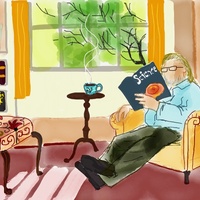Johan De Smedt
Saint Louis University, Philosophy, Department Member
Understanding the pervasiveness of sin is central to Christian theology. The question of why humans are so sinful given an omniscient, omnipotent, and omnibenevolent God presents a challenge and a puzzle. One element of this puzzle is how... more
Understanding the pervasiveness of sin is central to Christian theology. The question of why humans are so sinful given an omniscient, omnipotent, and omnibenevolent God presents a challenge and a puzzle. One element of this puzzle is how sinful tendencies transmit in human communities. Here, we investigate Friedrich Schleiermacher's account of sin which we characterize as a biocultural evolutionary approach. That is, we propose that Schleiermacher conceives of sin as both biologically rooted and as culturally transmitted. We look at empirical evidence to support his account and use the cultural Price equation to provide a naturalistic model of the transmission of sin. This model can help us understand how sin can be ubiquitous and unavoidable, even though it is not biologically transmitted, and even if there is no historical Fall that precipitated the tendency to sin.
Research Interests:
The aim of this dissertation is to create a naturalistic philosophical picture of creative capacities that are specific to our species, focusing on artistic ability, religious reflection, and scientific study. By integrating data from... more
The aim of this dissertation is to create a naturalistic philosophical picture of creative capacities that are specific to our species, focusing on artistic ability, religious reflection, and scientific study. By integrating data from diverse domains (evolutionary and developmental psychology, cognitive anthropology and archeology, neuroscience) within a philosophical anthropological framework, I have presented a cognitive and evolutionary approach to the question of why humans, but not other animals engage in such activities. Through an application of cognitive and evolutionary perspectives to the study of these behaviors, I have sought to provide a more solid footing for philosophical anthropological discussions of uniquely human behavior. In particular, I have argued that art, religion and science, which are usually seen as achievements that are quite remote from ordinary modes of reasoning, are subserved by evolved cognitive processes that serve functions in everyday cognitive tasks, that arise early and spontaneously in cognitive development, that are shared cross-culturally, and that have evolved in response to selective pressures in our ancestral past. These mundane cognitive processes provide a measuring rod with which we can assess a diversity of cultural phenomena; they form a unified explanatory framework to approach human culture. I have argued that we can explain uncommon thoughts (exceptional human achievements, such as art, religion and science) in terms of interactions between common minds (ordinary human minds that share their knowledge through cultural transmission). This dissertation is subdivided into four parts. Part I outlines the problem of human uniqueness, examining theories on how humans conceptualize the world, and what their mental tool box looks like. Part II discusses the evolutionary and cognitive origins of human artistic behavior. Part III focuses on the cognitive science of religion, especially on how it can be applied to the reasoning of theologians and philosophers of religion. Part IV considers the cognitive basis of scientific practice.
